In the latest issue of Science Advances, a groundbreaking research achievement has captured widespread attention in the scientific community.
This study, jointly conducted by Professor Shuailong Zhang and Professor Jiafang Li’s team at Beijing Institute of Technology, successfully developed a novel nanoscale "kirigami" microrotor capable of precise morphology and positional control via optoelectronic tweezer technology.
I. Nano-Kirigami Artistry: Birth of Microrotors
Kirigami – an East Asian traditional art of creating 3D structures by cutting/folding paper – has been scaled into the microscopic realm. Scientists now leverage "nano-kirigami" techniques to transform 2D surfaces into stimuli-responsive 3D reconfigurable structures. This technology demonstrates immense potential in electronics, mechanics, advanced manufacturing, energy harvesting, and biomedical engineering.
II. Microrotors: A Nanoscale Revolution
Researchers fabricated gold microrotors (~10 μm diameter, ≈1/100,000 the size of macroscopic propellers). Inspired by conventional propellers, each unit features:
-
A central disk
-
Eight symmetrically arranged peripheral teeth
-
Five kirigami-engineered nanoblades at the hub
This design ensures structural stability while enabling localized field enhancement for precise manipulation via programmable light patterns in Optoelectronic Tweezers (OET) systems.
点击了解OET相关资讯
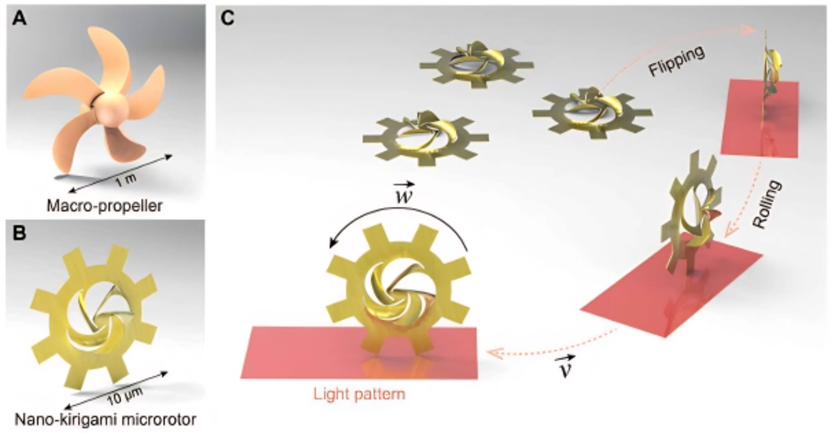
Nanoscale Microrotors Driven by Optoelectronic Tweezers
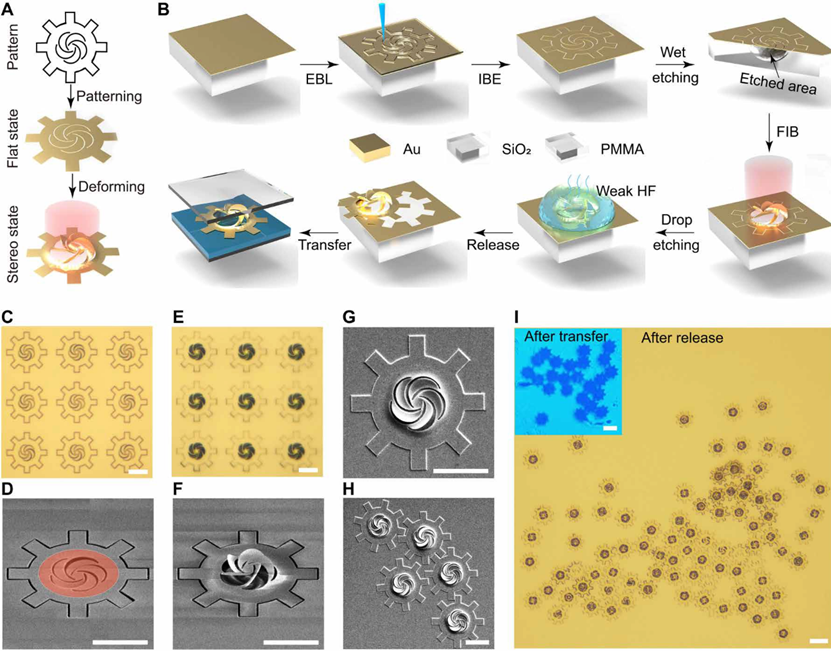
Design, Fabrication and Transfer of Nano-Kirigami Microrotors
III. Experimental Validation: Multimodal Motions
Microrotors demonstrated diverse movements in OET systems:
Vertical rolling
Steering
Rotation (spin)
Revolution (orbital motion)
Under electric fields, they achieved:
-
Rapid morphological transitions
-
Sub-micron precision motion control
-
Navigation through microchannels (serving as light-guided valves)
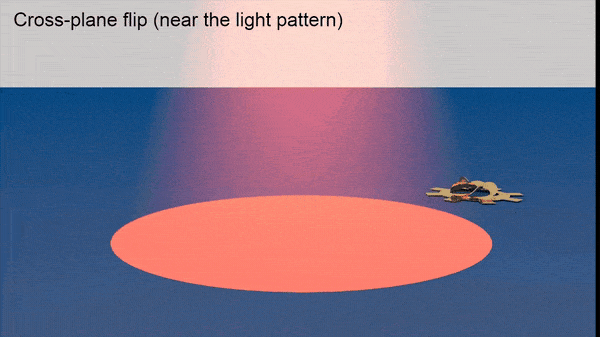


Motion Simulation Animation of Nano-Kirigami Rotors
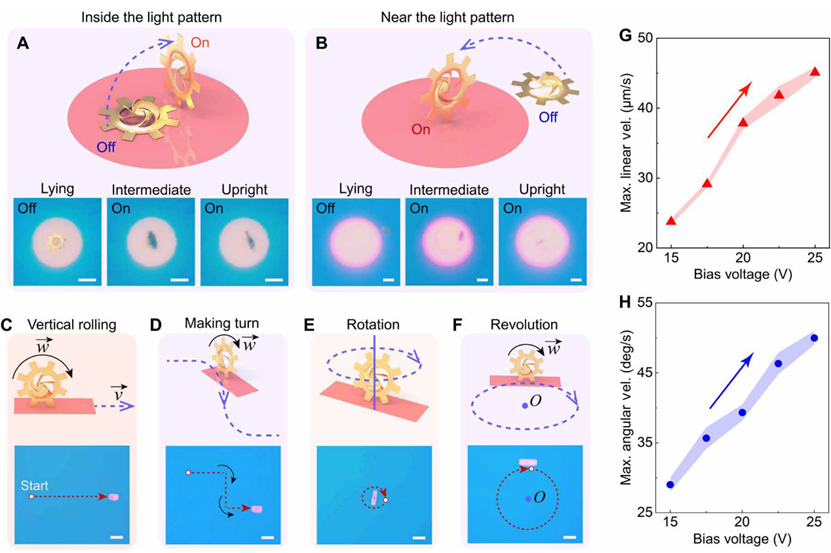
Actuation Experiments on Nano-Kirigami Microrotors
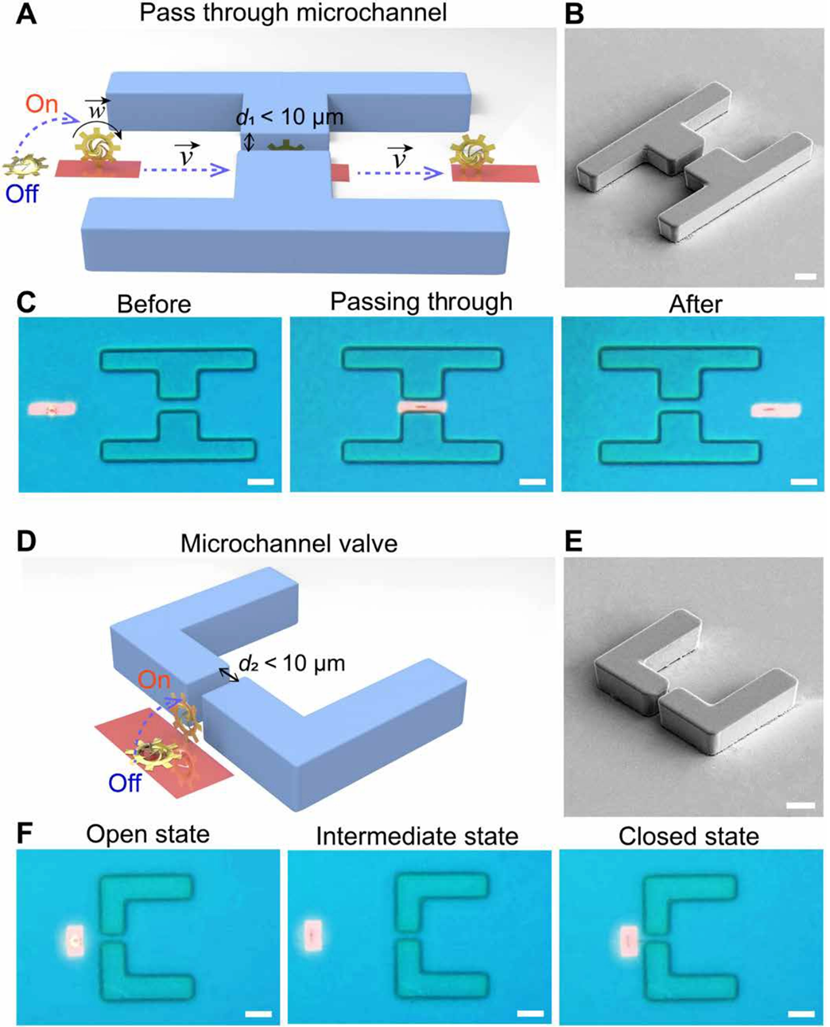
Operation of Nano-Kirigami Microrotors in Microchannels
Citation:Optoelectronically navigated nano- kirigami microrotors.Science Advances 2024.
IV. Future Prospects: Versatile Applications
This advance unlocks new possibilities for:
▸ Microfluidics
▸ Nanophotonics
▸ MEMS/NEMS
▸ Nanoscale optomechanical systems
Multifunctional capabilities include:
-
Flip-switch motion
-
On-demand valving
-
Raman signal enhancement
Conclusion:
These kirigami microrotors showcase exceptional potential in precision manufacturing and manipulation – executing complex motions within confined microenvironments. As technology evolves, such micromachines promise transformative innovations across multidisciplinary fields.
Citation: Optoelectronically navigated nano-kirigami microrotors. Science Advances 2024, 10(17): eadn7582.






